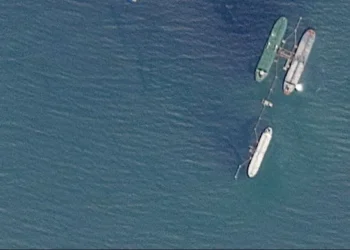UK Judge Halts Deportation of Migrant to France in Test of New Agreement
Published Time: 09-17-2025, 10:30
A British High Court judge has temporarily blocked the government from deporting an asylum-seeker to France, delaying the first removal under a new agreement between London and Paris. The ruling highlights the legal and political challenges facing Prime Minister Keir Starmer’s approach to Channel crossings.
Court Grants Interim Relief in Human Trafficking Claim
The case involves a 25-year-old Eritrean man who crossed the English Channel earlier this year. He was scheduled to be placed on a commercial flight to France on Wednesday. However, his lawyers appealed the decision, arguing that he is a potential victim of human trafficking.
High Court judge Clive Sheldon granted “a short period of interim relief,” giving the man additional time to present evidence supporting his claim.
“It seems to me there is a serious issue to be tried with respect to the trafficking claim and whether or not the Secretary of State has carried out her investigatory duties in a lawful manner,” Sheldon said in court, according to the Associated Press.
Government Argues Migrant Should Have Claimed Asylum in France
Lawyers representing Home Secretary Shabana Mahmood maintained that the man, who cannot be publicly identified for legal reasons, should have sought asylum in France rather than traveling on to the United Kingdom.
Officials view the case as a key test of the new bilateral deal with Paris, under which migrants arriving in Britain from France can be returned. In exchange, the UK has agreed to take in certain asylum-seekers currently in France who have close family ties in Britain.
Political Setback for Starmer’s Channel Strategy
The ruling is a setback for Prime Minister Keir Starmer, who has made tackling irregular Channel crossings a central priority of his government. More than 30,000 people have crossed the Channel so far in 2025, compared with 37,000 in 2024, according to government data.
The perilous journey across one of the world’s busiest shipping lanes has claimed dozens of lives in recent years. Overcrowded dinghies and hazardous conditions continue to draw sharp criticism from humanitarian organizations and international observers.
From Rwanda to France: Policy Shift in Migration Strategy
Starmer scrapped the previous Conservative government’s controversial Rwanda plan, which sought to deport asylum-seekers to the East African nation on a one-way basis. Instead, he has pursued a “one in, one out” policy with France, which officials have described as a breakthrough in migration management.
While the program currently covers only a limited number of cases, ministers argue it offers a more balanced and cooperative solution. Home Office officials are also working to speed up asylum claim processing, with tens of thousands of applicants currently awaiting decisions.
Hotels and Public Protests Highlight Pressures
The backlog has forced the government to house large numbers of migrants in hotels across the country at public expense. These accommodations have become a flashpoint for protests and political debate, underscoring the pressure on local communities and government resources.
Cabinet Minister Liz Kendall said the court ruling was disappointing but stressed that it would not derail the wider UK-France agreement.
“This is one person. It is not going to undermine the fundamental basis of this deal,” Kendall said.
What Comes Next
The Eritrean man’s case will now proceed to further hearings, where the High Court will assess the strength of his trafficking claim. If upheld, the government may be legally required to allow him to remain in Britain.
For Starmer’s government, the case represents not only a legal test but also a political one, as it seeks to balance tough border control promises with the country’s human rights obligations.
This article was rewritten by JournosNews.com based on verified reporting from trusted sources. The content has been independently reviewed, fact-checked, and edited for accuracy, neutrality, tone, and global readability in accordance with Google News and AdSense standards.
All opinions, quotes, or statements from contributors, experts, or sourced organizations do not necessarily reflect the views of JournosNews.com. JournosNews.com maintains full editorial independence from any external funders, sponsors, or organizations.
Stay informed with JournosNews.com — your trusted source for verified global reporting and in-depth analysis. Follow us on Google News, BlueSky, and X for real-time updates.














